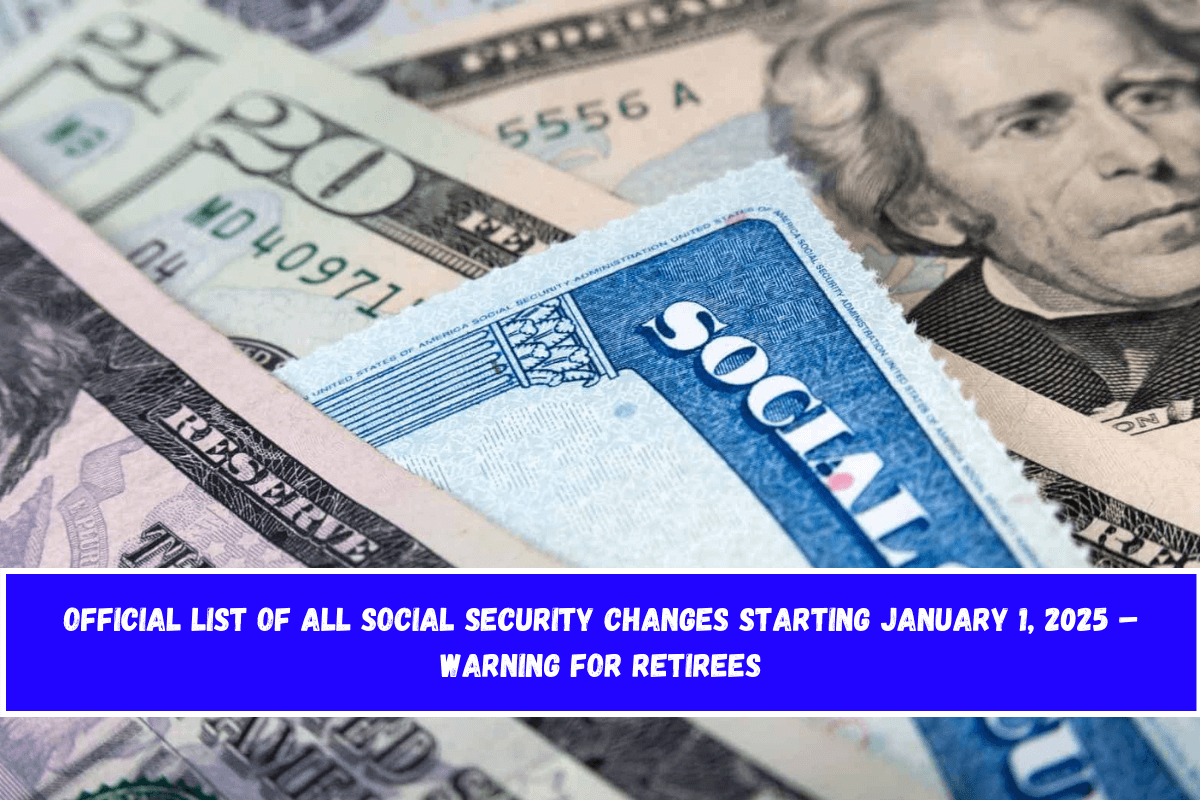With 2025 approaching, it is critical for recipients of government programs such as Social Security to be aware of potential changes to the program in order to have the most favorable experience possible in the new year.
The majority of the changes are modest modifications caused by inflation fluctuations, but other changes might have a greater impact, therefore it is critical to stay informed.
-
The 2025 Social Security COLA
Every year, Social Security beneficiaries receive a cost-of-living adjustment, or COLA, to ensure that their benefits keep up with inflation, as there are no other ways to increase benefits after retirement. The COLA rise is always applied in January for the next year’s benefit, and the increase for 2025 will be 2.5%.
In actual terms, the average retired worker will receive $1,925.46 per month from Social Security in 2024. If we apply the increase to this benefit, the average retired worker will earn approximately $1,974 beginning in the new year.
-
The Social Security benefit formula
The Social Security benefit formula has remained unchanged for years, and 2025 will see no changes to it; nevertheless, the numbers within the formula used to compute payments will be adjusted in line with inflation.
To compute benefits, a worker’s 35 highest-earning years are indexed for inflation and averaged, and the monthly average earnings are used to a formula using three multipliers: 90%, 32%, and 15%, which remain constant each year.

The amount that varies is the amount of money they apply to, also known as bend points. In 2025, the formula used to calculate average indexed monthly earnings (AIME) is:
90% of the first $1,226.
32% of the amount between $1,226 and $7,391.
15% of any AIME greater than $7,391.
-
Maximum possible Social Security benefit
Another change connected to inflation is that, as previously stated, Social Security benefits grow each year due to the COLA; nevertheless, there is a maximum payment that all beneficiaries are subject to, which is determined by the age at which they register for retirement.
According to the Social Security Administration, “if you retire at full retirement age in 2024, your maximum benefit will be $3,822.” However, if you retire at age 62 in 2024, the maximum benefit is $2,710. If you retire at 70 in 2024, your maximum benefit will be $4,873.
These amounts will rise in 2025, resulting in a maximum monthly payout of $2,831 for someone retiring at age 62, $5,108 for someone retiring at age 70, and $4,018 for someone retiring at their full Social Security retirement age in 2025.
-
Contribution and benefit base
Starting in 2025, the Social Security payment and benefit base will increase to $176,100, up from $168,600 in 2024. Known as the “Social Security taxable maximum earnings,” this limitation restricts the amount of income that is subject to the 6.2% payroll tax for both employers and employees.
It also has an impact on benefit calculations because it reflects the highest income considered for calculating the AIME, which is a significant component of the Social Security formula.
-
How much you can earn while collecting Social Security
In 2025, the Social Security earnings test restrictions will increase. Individuals who have not yet achieved full retirement age (FRA) this year will be exempt from monthly earnings of up to $1,950, with $1 in benefits withheld for every $2 earned beyond this level.
- For those who reach FRA in 2025, the exempt monthly earnings ceiling is $5,180, with $1 deducted for every $3 earned above this amount. Importantly, any benefits withheld owing to the earnings test are not forfeited; they will be utilized to enhance your monthly payment once you reach FRA.











Leave a Reply